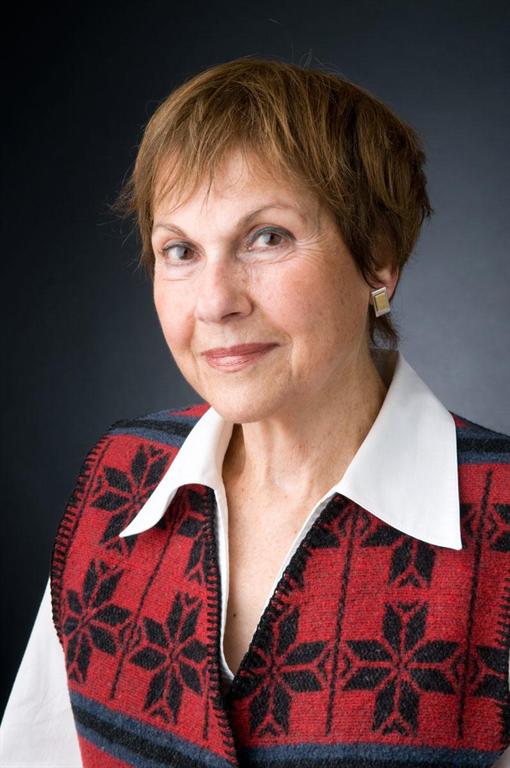Researchers
Dr. Phyllis Zelkowitz, Ed.D, is Research Director in the Department of Psychiatry at the Jewish General Hospital, Senior Researcher and head of the Psychosocial Axis of the Lady Davis Institute, and an Associate Professor in the Department of Psychiatry, McGill University. She serves as Associate Chair of the Jewish General Hospital Research Ethics Committee. Dr. Zelkowitz received a B.A. (Honours) in Psychology from McGill University, and an M.A. in Educational Psychology from the University of Toronto. She obtained her doctorate in Human Development at Harvard University.
Her research interests are in the field of perinatal mental health, incorporating individual, contextual, and cultural factors. Her research on parental adjustment to the birth of a very low birthweight (VLBW) infant examined individual characteristics of the parents (such as anxiety and feelings of competence), contextual variables (such as social support and the marital relationship), and cultural factors related to parenting attitudes and behaviour. In conjunction with Dr. Nancy Feeley, Dr. Zelkowitz has developed and tested an intervention program to reduce anxiety and enhance the parenting skills of mothers of VLBW infants. She has also studied postpartum depression in native born and immigrant women, the impact of postpartum depression on the couple relationship, and risk factors for borderline pathology in mothers and children. Her current research projects include an examination of the social context and psychological distress in couples seeking assisted reproductive technology services, and the study of biological and psychosocial risk factors in relation to perinatal mental health and the mother-infant relationship.
Dr. Sue Carter, Ph.D., is a Professor of Psychiatry and the Co-Director of The Brain Body Center at the University of Illinois at Chicago. Dr. Carter’s research focuses on the neurobiology of social behaviour and stress management, using as a primary model the socially monogamous prairie vole. She is also involved in the analysis of the role of neuropeptide hormones, such as oxytocin, vasopressin and CRF, in the development and expression of human disorders including as anxiety, depression, schizophrenia and autism. She is past president of the International Behavioural Neuroscience Society and has been funded throughout her research career by US granting agencies, including NIH and NSF.
Dr. Nancy Feeley, BSc.(N) M.Sc.(A) Ph.D, is a Senior Researcher at the Centre for Nursing Research at the Jewish General Hospital. She is also a project director at the Lady Davis Institute for Medical Research and an Associate Professor at the McGill University School of Nursing. She is a Clinician Research Scholar, Fonds de la recherche en santé Québec (FRSQ) and the co-director, with Dr. Sylvie Cossette from the University of Montreal, of GRIISIQ (The Quebec Interuniversity Nursing Intervention Research Group). This FRSQ-funded research group is the first interuniversity group involved exclusively in the development and evaluation of nursing interventions and the measurement of their clinical impact.
Dr. Feeley's research interests include: enhancing the quality of parents' interactions with their infants, premature infants who are at ris for developmental and social problems, fathers and their parenting, the development of nursing interventions and perinatal women’s mental health. She is the co-author of a book, published by Elsevier/C.V. Mosby, which explores how nurses can work collaboratively with patients and their families. The book has been translated into French and Japanese.
Dr. Ian Gold, Ph.D, is the Canada Research Chair in Philosophy & Psychiatry at McGill University in Montreal. He completed a Ph.D. in Philosophy at Princeton University and did postdoctoral training at the Australian National University in Canberra. From 2000 to 2006 he was on the faculty of the School of Philosophy & Bioethics at Monash University in Melbourne and returned to McGill in 2006. His research focuses on the theory of delusion in psychiatric and neurological illness and on reductionism in psychiatry and neuroscience. He is the author of research articles in such journals as Behavioral and Brain Sciences, Mind and Language, Consciousness and Cognition, The Canadian Journal of Psychiatry, World Psychiatry, Transcultural Psychiatry, Philosophy, Psychiatry, & Psychology, and Cognitive Neuropsychiatry. No Mind is an Island, a book co-written with Joel Gold, is due to appear in 2012.
Dr. Barbara Hayton, MD, is an Assistant Professor of Psychiatry and Family Medicine at McGill University. She graduated from McGill School of Medicine, trained as a Family Physician, and is a full time member of the department of Psychiatry at the Jewish General Hospital in Montreal. Dr. Hayton is the director of the Perinatal Mental Health Service which provides evaluation and treatment of women and couples with pregnancy and postpartum related mental health problems. She also is a member of the hospital’s Couple and Family therapy service, and works on a general outpatient psychiatry team.
Dr. Hayton has a varied experience of teaching and supervising psychiatry residents, family practice residents, and medical students at McGill. She also lectures at the McGill School of Social Work, and CEGEP Marie-Victorin in the community social work program.

Dr. Eva Libman, Ph.D, is an Associate Director, clinical psychologist and Principal Investigator with the Behavioural Psychotherapy and Research Unit, Department of Psychiatry at the Jewish General Hospital, with which she has been associated since 1979. She is also an Assistant Professor in the department of Psychiatry at McGill University. Her current main areas of interest, both as a clinician and researcher are in the areas of sleep, sleep disorders, performance related to daytime fatigue and sleepiness and issues related to aging.
Dr Libman’s research program relates to sleep related aspects of behavioural medicine and health psychology. The major focus is on the determinants and treatments of primary sleep disorders on the one hand, and on fatigue, sleepiness and other aspects of daytime functioning on the other. She publishes extensively with colleagues and students and currently holds grants from both provincial and federal funding agencies.

Dr. Brett Thombs, Ph.D, completed his Ph.D. in clinical psychology at Fordham University in 2004 followed by a postdoctoral fellowship at Johns Hopkins University. In 2006 he was appointed Associate Professor in the Department of Psychiatry of McGill University and Investigator at the Lady Davis Institute for Medical Research of the Jewish General Hospital. His research focuses on identifying and assessing key problems faced by patients dealing with medical illness and on determining mental health and behavioral intervention paradigms that are likely to improve patients' health and well-being. In addition, he studies how research methods may affect the applicability of research to clinical settings.
Dr. Thombs has published over 95 peer-reviewed articles in the last 5 years. He has grant funding from the CIHR, FRSQ, and several private foundations. The success of his research program has been recognized with a New Investigator Award from the CIHR, an American College of Rheumatology Research and Education Foundation Health Professional Investigator Award, the Canadian Psychological Association President’s New Researcher Award, and the Canadian Psychological Association Health Psychology Section Early Career Award. In addition, a systematic review that he authored on depression screening in cardiovascular care was a finalist for the 2009 BMJ Group Research Paper of the Year Award.
Dr. Tulandi, MD, is a Professor of Obstetrics and Gynecology, Milton Leong Chair in Reproductive Medicine, and the Director of Division of Reproductive Endocrinology and Infertility at McGill University. He is also the Chief of Department of Obstetrics and Gynecology at the Jewish General Hospital. In addition to being an internationally known reproductive/endoscopic surgeon, he is the author or coauthor of more than 300 journal articles, over 60 book chapters and 12 books. Dr. Tulandi has received many awards and prize papers and sits in the editorial board of 12 medical journals. His research focuses on the induction of ovulation with aromatase inhibitor and prevention of post-surgical adhesion.
Dr. Rob Whitley, Ph.D, is Assistant Professor of Psychiatry at McGill University and researcher within the Psychosocial Division of the Douglas Mental Health Institute. A social scientist with considerable experience working at the intersection of psychiatry, sociology and anthropology, his work has focused on the mental health and health service experience of marginalized groups, including immigrants, ethno-cultural minorities, the urban poor and single mothers. Whitley is particularly interested in the concept of recovery, examining barriers and facilitators to recovery within both health services and the wider socio-cultural environment. He and his colleagues have evaluated many recovery-oriented psychosocial interventions such as supported employment, supportive housing and illness self-management programs. They have shown that cross-cultural communication, discrimination, stigma, religion and family involvement all play a role in influencing mental health service utilization and recovery.
Whitley’s current research includes examining community integration and recovery among minorities with severe mental illness. This research is providing insights into how best to help minorities and other marginalized populations recover. Dr. Whitley is also conducting a systematic analysis of media coverage of mental illness in Canada, in order to discern whether the media are taking a more positive approach to mental health. He is particularly interested in the relationship between religion/ spirituality and mental health. Dr.Whitley is also interested in mental health and mental health services in developing countries. With colleagues, he has conducted research in Ethiopia and Jamaica, and continues to work in global mental health.







